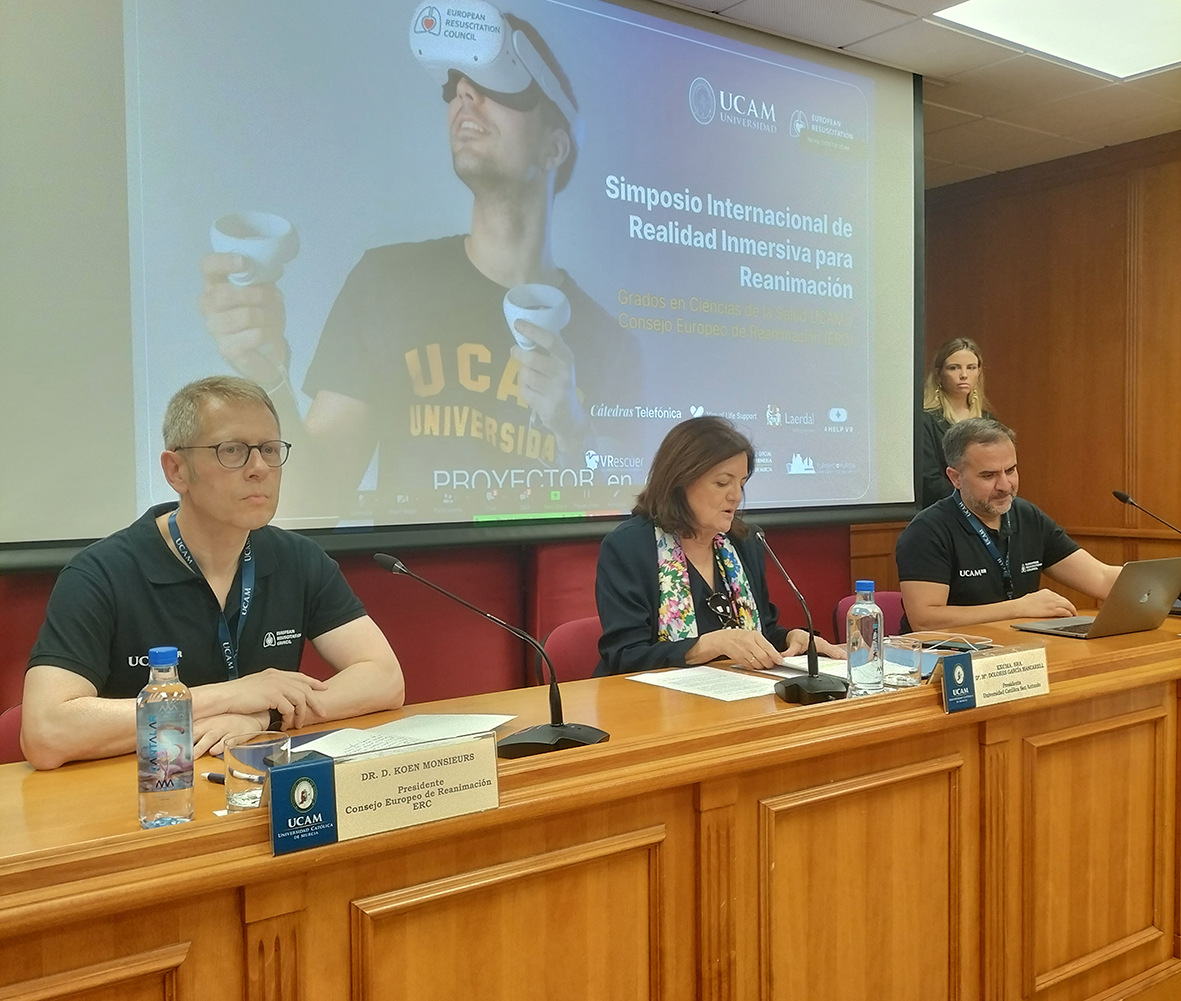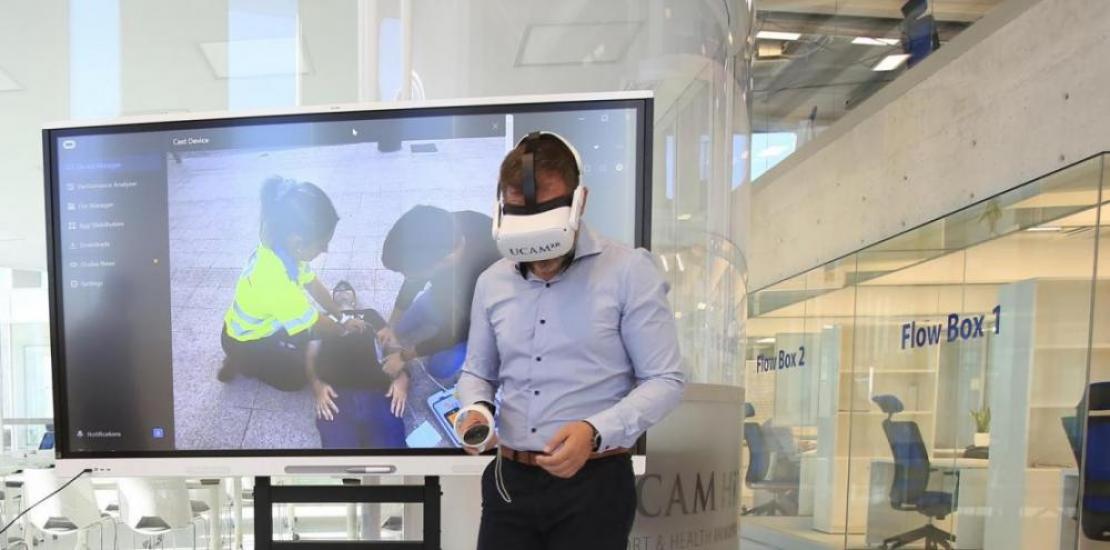Goal in CPR: saving lives with immersive reality
UCAM and the European Resuscitation Council analyse the application of these new technologies at the 1st International Symposium of Immersive Reality for Resuscitation.
A hundred teachers and health professionals from all over the world interested in the study of the use of new technologies in the learning process of cardiopulmonary resuscitation will get together at the UCAM Murcia Campus. This meeting is in the framework of the I International Symposium on Immersive Reality for Resuscitation organised by UCAM and the European Resuscitation Council (ERC).
The participants are working, through round tables and workshops, on the use of immersive technologies - virtual reality, metaverse, augmented reality, etc. - and how they can help to better train students and professionals, ‘and something that is very important, to train the entire population, from children to adults, so that they can learn how to perform cardiopulmonary resuscitation and be able to help someone while the emergency services arrive,’ said Manuel Pardo, UCAM vice-dean and member of the Symposium's scientific committee, adding that ‘this convergence of science and technological advances is going to be very important in improving survival rates in the event of cardiac arrest’.
UCAM has been immersed in a constant process of Digital Transformation, a commitment to the use of innovative technologies and methodologies that give added value to teaching, for years.
‘Through the application of this technology to CPR, our aim is to contribute to saving lives,’ said María Dolores García, UCAM president, during the inauguration of the event, recalling that ‘as a Catholic university, we transmit values to our students’. She also announced that the funds raised by the congress will be used to continue advancing in the study of this field.

The Murcian institution and the European Resuscitation Council have exchanged knowledge on several occasions, which has led them to set up an international network of people interested in this area. And, despite the constant reference to artificial intelligence and virtual reality, there is still not much research or working groups in the healthcare field. ‘UCAM is an innovative university with the application of these new technologies in its educational programmes,’said Koen Monsieurs, president of the European Resuscitation Council (ERC), who stressed that both institutions ‘will continue to work together in this field, to learn how we can use new technologies to train in CPR techniques, and to know if training with this new tool will help us be better prepared’.




